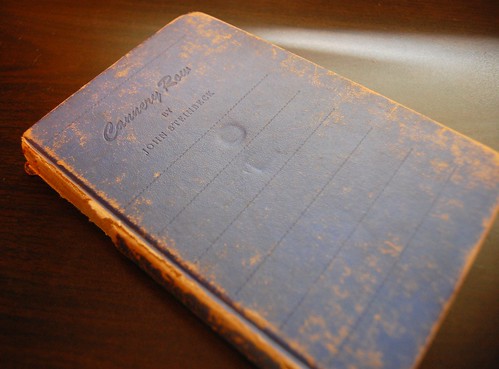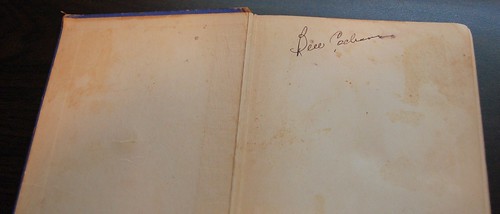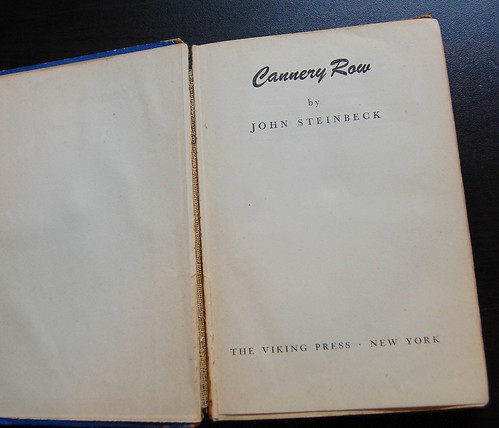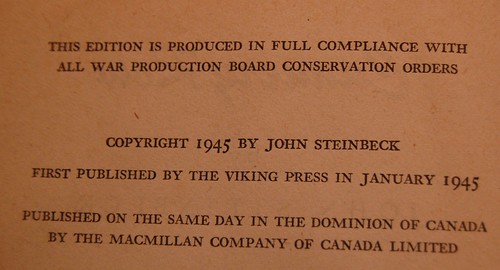When enjoying David Puterbaugh’s last post about summer reading as part of his MFA program, I started thinking about my current yearning for escapist reading.
I’m not a snob when it comes to novels–I will forgive authors much if they give me engaging characters–but when I need to escape, I’m less inclined to turn to light reading than to that hotly debated term: literary writing. I want language to cast its spell. I want to fall for words and how they’re put together. Most popular fiction–my own included–often neglects language for story.
Some of you may remember Greg’s mentioning that during one of his visits to The Compound, he had a chance to pick up some books from a personal library. That was my mother’s collection, and I was grateful for Greg’s discretion, in fact, the discretion of all my friends who respected my family’s privacy over the past few months. During that visit, along with making me laugh and continuing our ongoing conversation about writing, Greg also helped move furniture. He didn’t do it for any reason but friendship; nonetheless, I wish we’d had more books for him to choose from. Over the years, my mother had already given her children most of the novels we wanted and held on mainly to her comfort reads. There were a few literary classics left which I used to replace some of my college paperbacks, and some old first editions of books that she wanted my brother to have.
Somewhere in the sorting, I found a book I’d never noticed before. Here’s the order in which I examined it.

A worn copy of Cannery Row by John Steinbeck.

My father’s name written in his hand–almost a gift in itself.
As he got older, he suffered from what his little granddaughters called
“Grandpa’s disease” (Parkinsons) and developed a tremor in his right hand:
a frustrating affliction for an artist. In his sixties, he retrained himself
to use his left hand, but his penmanship was never as flowing again.

Damage to the binding–the sign of a book with some mileage.

The copyright page with a strange statement that made me curious.
So I researched and learned the following about publishing from Wartime: Understanding and Behavior in the Second World War by Paul Russell:
Paper was in short supply, and Kleenex virtually disappeared, not to mention toilet paper…. Newsprint and magazine stock grew coarser, and low-budget periodicals…looked as if printed on paper towels, and gray ones at that. Book paper often disclosed twigs, and those accustomed to prewar books feared that pages would soon yellow and brown and then flake away. Books apologized for their straitened and nasty appearance and implied where the blame lay by carrying some version of this statement on the copyright page:
all War Production Board Conservation Orders.
I immediately turned back to the book, assured it that it had nothing to be ashamed of, and opened to the first page of the introduction, which began:
Cannery Row in Monterey in California is a poem, a stink, a grating noise, a quality of light, a tone, a habit, a nostalgia, a dream. Cannery Row is the gathered and scattered, tin and iron and rust and splintered wood, chipped pavement and weedy lots and junk heaps, sardine canneries of corrugated iron, honky tonks, restaurants and whore houses, and little crowded groceries, and laboratories and flophouses. Its inhabitants are, as the man once said, “whores, pimps, gamblers, and sons of bitches,” by which he meant Everybody. Had the man looked through another peephole he might have said, “Saints and angels and martyrs and holy men,” and he would have meant the same thing.
And I sighed with love for language all over again.
For my reference: Photo submitted to God’s Nightgown.

Fascinating treasure, there! Is that the earliest book in your collection?
My eldest (oh, what a scamp!) is a 1926 edition of Gentlemen Prefer Blondes with great illustrations. Snatched it for $1.50 at a “junk” store in Greensboro.
I ought to pay tribute to this entry and take some pictures of it. : )
Hmmm. I have no idea if that’s the oldest book from among my books.
I’ll look forward to your photos.
Ah, Steinbeck. I was forced to read The Grapes of Wrath in high school, and that turned me against him. As an adult, I read East of Eden and was blown away by it…then tore through every Steinbeck I could get my hands on…
And no biggie on the furniture. Heavy lifting is one of the few things I am good for.
While I love East of Eden … and all the movies and mini series it inspired. Forget Dr Quinn – Jane Seymour was a rockin Cathy, I have to say Travels with Charley is my favorite Steinbeck.
I love Travels with Charley, too. =)
I think some writers are meant to be read when we’re older. In junior high, I was forced to read The Red Pony and hated it.
I read The Grapes of Wrath in college and it broke my heart. So when I graduated, I read a bunch of Steinbeck and loved them all. But somehow, I’ve never made myself read The Red Pony again. I should try it and see if I’ve improved with age.
What A WONDERFUL TREASURE!!!!
=)
What a wonderful discovery! Grapes of Wrath is one of my faves. I’ve never read Cannery Row but the excerpt you’ve shared has piqued my interest. I’m adding it to the list. 🙂
Yay! And thank you for using the correct spelling of “pique.” It’s amazing how many people don’t.
I know, like those people who write “starring” instead of “staring,” and “desert” instead of “dessert.” What is wrong with those…what, ME?!…Really?!…
Never mind!
What a beautiful book! I’ve been thinking of doing an entry with some pictures of my favorite old books that I’ve collected. I might try to do that on Friday!
Thank you for sharing your treasure with us!
You’re welcome. =) I look forward to your picture post!
Was there a war on when IYM was published?
I had the same thought.
When going through some books at my mother and father’s house, I found an atlas published at the end of the 1800s. My mother says I can have it when she moves, which should be this year or the next. It’s gorgeous, but doesn’t have the sense of wonder your book has – no one has signed it, and, oddly, no one can remember where it came from.
I’ve not read Cannery Row, though I suffered the same anti-Steinbeck sentiments had when I was forced to read some in high school – I came into him later, in University.
Enjoy it.
What a wonderful, historic find! I love “Cannery Row”, but my own copy is an ordinary paperback . . . not such a treasure as this.
I hadn’t realised any of that stuff about paper in wartime; but now I think of it, our own Penguin books from that – when you come across one – are printed on much thinner and cheaper paper. Most intriguing . . .